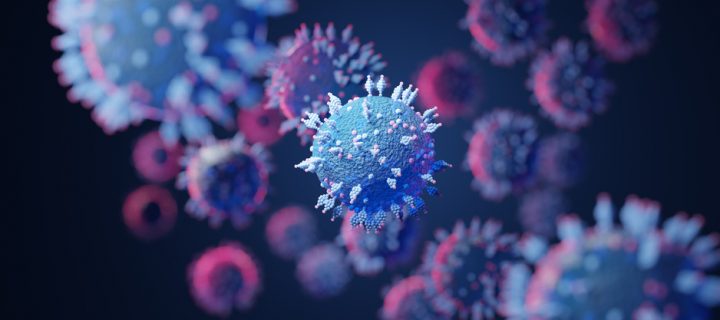Studies show that it may be but without a booster shot, you may have very little protection against it.
Omicron is here. If you haven’t heard of it yet, this is the newest variant of the novel coronavirus. It’s spreading like wildfire around the globe. First reported by officials in South Africa, it’s difficult to tell exactly where Omicron actually originated. South Africa is said to have had a comprehensive system for testing for the virus and sequencing it. This no doubt helped lead to the variant’s detection. Wherever it came from is now irrelevant as Omicron is now just about everywhere and replicating quickly. Countries are seeing positive case counts at record heights never before encountered throughout the course of the pandemic.
Seeing the virus case counts rise suddenly and steeply can be extremely worrying. The key question, to consider, however, is, is it more severe? Is it able to take us down with the same or greater force as other strains of the virus? Here’s what scientists are saying so far.
What is Omicron?
As stated above, Omicron is the latest variant of SARS-CoV-2, the virus causing COVID-19. The World Health Organization (WHO) decided it’s best to use the letters of the Greek alphabet, in order, to name the new variants of the novel coronavirus as they arise. Delta is the variant before Omicron that the general public heard of most widely. Between Delta and Omicron are actually ten other letters of the Greek alphabet. Eight of these were used to name variants within the scientific community that most of us didn’t hear about. And the letters ‘Nu’ and ‘Xi’ were skipped. Why? Reports indicate that ‘Nu’ sounded too much like “new” and that ‘Xi’ doesn’t work because it’s a common surname for some people.
While the Centers for Disease Control and Prevention (CDC) haven’t stated so officially, Omicron seems to spread much more rapidly compared with Delta. The good news is that it might not be as potent.
Studies Show Omicron is Less Severe
Many experts, including those at the CDC, are still reluctant to declare decisively that Omicron is a less severe strain of COVID-19 compared to its predecessors. Some research is showing this could be the case, however. A study done by researchers at University College London found this variant is somewhat different.
“In essence, it (Omicron) looks to be more able to infect the upper respiratory tract – cells in the throat,” said Deenan Pillay, professor of virology at University College London to The Guardian. “So it would multiply in cells there more readily than in cells deep in the lung. This is really preliminary but the studies point in the same direction.”
Related: How to Set Realistic Goals for 2022
This higher viral load in your throat and the lower count in the lungs could mean the virus is more transmissible but that people are less likely to develop respiratory problems with this variant. This could mean it’s less dangerous. We wait to see, however.
Another study done at the University of Liverpool found that mice infected with the Omicron virus fared better than those infected with the Delta variant. The fact that hospitalizations and deaths connected with the Omicron variant are not yet rising at the same rapid rate as cases are right now is promising. It will still take more time and study to be sure, however, that Omicron infection is less severe.
Why Health Officials Are Stil Worried, However
While the CDC states that COVID-19 vaccines are likely to protect you from developing a severe case of the coronavirus if you catch the Omicron variant, they most likely won’t protect you against catching the virus and testing positive. In fact, one study done by Humabs Biomed SA and researchers from the University of Washington found the Johnson & Johnson vaccine wasn’t able to neutralize Omicron at all.
Research has shown that two doses of Pfizer vaccine offers little protection against catching Omicron, and the same can generally be stated for Moderna’s. Booster shots of all coronavirus vaccines are recommended for eligible people in the face of Omicron. This involves third shots of Pfizer, Moderna, and Astrazeneca vaccines, and second shots of Johnson & Johnson’s vaccine.
The concern is that, while Omicron may be less severe for most people, the fact that it spreads so readily and does cause some people to fall seriously sick, is concerning. This means the hospitals may still become overwhelmed with patients needing lifesaving care. While the situation on the ground is changing rapidly, at the time of this writing COVID-19 hospitalizations in the US are on the rise, but not yet at their previous maximum levels. Deaths from the virus are also maintaining a level consistent with previous weeks. That may all change in the days to come, however.
Your best course of action right now is to keep practicing pandemic measures like wearing a mask and social distancing. Get your booster shot as soon as you are eligible.
photo credits: Fit Ztudio/Shutterstock.com












